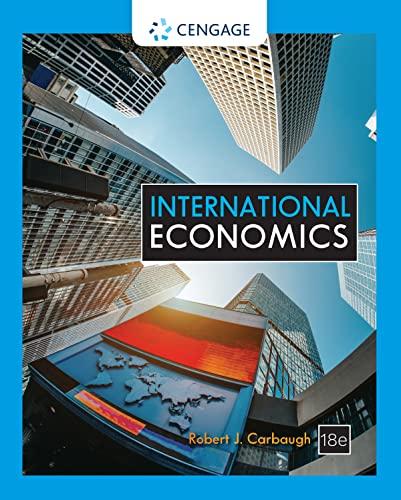Global economic downturns can be catalysts for trade protectionism. As economies shrink, nations have incentive to protect
Question:
Global economic downturns can be catalysts for trade protectionism. As economies shrink, nations have incentive to protect their struggling producers by establishing barriers against imported goods. Consider the Great Recession of 2007-2009. As the global economy fell into recession, a decrease in the demand for goods and services, and thus a decline in international trade, occurred. Exports declined by 30 percent or more for countries as diverse as Indonesia, France, South Africa, and the Philippines. Increasingly, firms and workers worried about the harm that was inflicted on them by their foreign competitors who were seeking customers around the globe.
China was the country targeted by the most governments for protectionist measures. Although leaders of the Group of 20 large economies unanimously pledged not to resort to protectionism in 2008 and 2009, virtually all of them slipped at least a little bit. Russia increased tariffs on imported automobiles, India raised tariffs on steel imports, and Argentina established new obstacles to imported auto parts and shoes. Also, in 2009 the United States imposed tariffs of between 25 and 35 percent on imports of tires from China for the next three years. This policy essentially priced out of the market 17 percent of all tires sold in the United States and forced up the market price for consumers.
During the Great Depression of the 1930s, countries raised import tariffs to protect producers damaged by foreign competition. The United States increased import tariffs on some 20,000 goods that provoked widespread retaliation from its trading partners. Such tariff increases contributed to the volume of world trade shrinking by a quarter. A lesson from this era is that once trade barriers are increased, they can severely damage global supply chains. It can take years of negotiation to dismantle trade barriers and years before global supply chains can be restored. Despite this lesson, governments have continued to adopt protectionist policies as their economies slide into recession.
What do you think? Concerning international trade policy, why do countries sometimes become more protectionist as their economies fall into recession?
Step by Step Answer:






